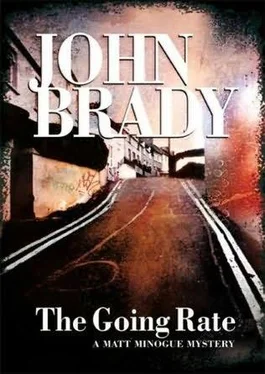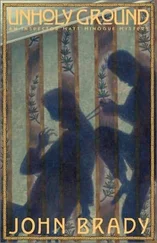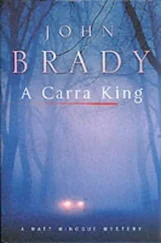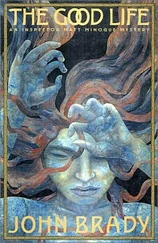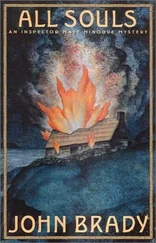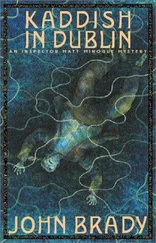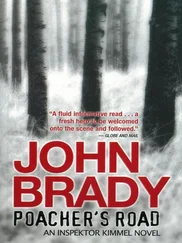John Brady - The going rate
Здесь есть возможность читать онлайн «John Brady - The going rate» весь текст электронной книги совершенно бесплатно (целиком полную версию без сокращений). В некоторых случаях можно слушать аудио, скачать через торрент в формате fb2 и присутствует краткое содержание. Жанр: Полицейский детектив, на английском языке. Описание произведения, (предисловие) а так же отзывы посетителей доступны на портале библиотеки ЛибКат.
- Название:The going rate
- Автор:
- Жанр:
- Год:неизвестен
- ISBN:нет данных
- Рейтинг книги:4 / 5. Голосов: 1
-
Избранное:Добавить в избранное
- Отзывы:
-
Ваша оценка:
- 80
- 1
- 2
- 3
- 4
- 5
The going rate: краткое содержание, описание и аннотация
Предлагаем к чтению аннотацию, описание, краткое содержание или предисловие (зависит от того, что написал сам автор книги «The going rate»). Если вы не нашли необходимую информацию о книге — напишите в комментариях, мы постараемся отыскать её.
The going rate — читать онлайн бесплатно полную книгу (весь текст) целиком
Ниже представлен текст книги, разбитый по страницам. Система сохранения места последней прочитанной страницы, позволяет с удобством читать онлайн бесплатно книгу «The going rate», без необходимости каждый раз заново искать на чём Вы остановились. Поставьте закладку, и сможете в любой момент перейти на страницу, на которой закончили чтение.
Интервал:
Закладка:
He seemed to have settled on renouncing things. The house that he and Maura had been so proud of was up for sale. His Audi was sold. No cigars. He took only the occasional drink, and rarely ate a meal in a restaurant. Though he now rented a boxy apartment near Thomas Street, he actually spent a lot of time on the family farm in Mayo. That was where his older brother Sean, gone very bad with the arthritis, was avoiding making decisions about the future, Kilmartin told Minogue. None of his brood wanted to make a go of the farm, apparently.
Kilmartin’s time there in boggy, wild and wet Mayo were more in the nature of dude ranching, he told Minogue. Bringing in the cows, driving the tractor; fixing drainage in the same boggy fields he had worked decades before; repairing sheds, the barn. Biding his time.
One evening, he listed his foods for Minogue. It was as though they were a guide to the New James Kilmartin: cabbage for the dinner — spuds of course; porridge every day; fish on Friday. Evenings on the farm meant sitting by the fire, reading the paper or the odd bit of television. No satellite tolerated, no sirree. A game of cards with the neighbours, or he’d try reading books he wished he had read years ago. A bit of yoga too, imagine that. He was trying to improve himself, he told Minogue, filling in gaps, so to speak.
Kathleen Minogue had spotted Kilmartin early in the New Year, looking through the self-help section in a Dublin bookshop. She swore that she had seen earphones and the tell-tale white wire of an iPod on him too. Minogue felt a strange embarrassment and even pity when he had heard this.
For Minogue’s part, he kept track of the progress of the internal investigation into the shennigans at the Kilmartins’ house that night. The Ombudsman’s Office had been up and running nearly two years now, but it was still the Commissioner who had the final say in discipline.
Minogue had now been interviewed three times about that night at Kilmartin’s — or as Plate Glass Sheehy had whispered in his ear one evening at Clancy’s pub, in a parody of a come-all-ye that Kilmartin would have appreciated in better times, “The Night Before Jimmy Was Stretched.” Well, nearly stretched.
The interviews had been low-key, and terribly polite all the way. Two of the “chats” had been with that reed-thin sergeant, Feeney; Feeney of the strangely white teeth and peppermint breath, Feeney with the skin tight over his forehead, a man who seemed to be perpetually straining, or holding back some great revelation, or fury.
The same Feeney had a soft manner that Minogue didn’t trust one iota. There had been a civil servant there at the second meeting, a woman from Justice who liaised with the Director of Public Prosecutions. Minogue remembered she wore those small and severe oblong glasses that were the style everywhere now. The suspicion, maybe even the assumption, that a friend of Jim Kilmartin’s like Minogue had to have been privy to Kilmartin’s doings sat like another party in the room. It was hardly news that Coopers looked after one another, was it.
Several fragments of the conversation had lodged in Minogue’s mind, and he had replayed them over and over again since.
“You and Superintendent Kilmartin are friends for some time.”
“That we are.”
“Working together for many years, I believe.”
“A good long while, yes.”
And on it had gone, with Feeney making observations more than asking questions. All very mild and civil, like a chess game. Minogue knew that a lot of it was for the benefit of the civil servant. She’d had to report to her department and minister, and so he had resolved not to react strongly to anything Feeney might say or insinuate. He had nevertheless prepared an aggressive statement, and he often itched to pull the pin on it.
Even at the time, he was glad that his chance never came, and more pleased yet when he got out of the meeting. He was nevertheless dismayed that he had been unable to divine: whether anyone clearly believed a) Kilmartin had been dirty, or b) had been in cahoots with his wife when she was having her odd phone conversations — very, very odd indeed — with the head of a Dublin crime family.
It wasn’t so much a shunning of Kilmartin that Minogue had observed since that night. It was noticing how few of Kilmartin’s contacts in the Guards had made a point of meeting Kilmartin face-to-face, or showing up at any of the sessions in Clancy’s.
Well who could blame them, Kilmartin had quietly explained to Minogue. They probably thought he was gone off the deep end. Or maybe being seen with him might affect their careers. Kilmartin had chuckled to himself then, Minogue recalled. Career, Kilmartin had mused wryly later on, and raised a smile. He had turned the word from a noun back into a verb, hadn’t he?
The point was, Kilmartin was owed, and that was that. Minogue wasn’t going to budge on that. It had been James Kilmartin who had set up the shaky Matthew Minogue in his Murder Squad years ago, when Minogue himself was damaged goods. Jittery, inert, and numbed by his own near-miss with death, Minogue was soon a probationer with Kilmartin’s Squad, and the years that followed had been Minogue’s best, working with Kilmartin, close to the dead.
A few cars passed faster now as the city traffic fell away. Minogue again pretended to check his far mirror. He saw that Kilmartin had fallen asleep.
Chapter 5
Colm Breen did a lot of his trademark slow nodding while Fanning talked. He kept his spoon going, carefully turning it on the tablecloth in a series of quarter rotations clockwise, stopping every now and then to rotate it back. Fanning refused to be distracted, or irritated, by it.
Fanning was aware that he was nearing the end of his time.
“It’s so intense,” he said. “Dublin, the real Dublin. No U2 concerts, no trendy apartments by the Liffey stuff. Life in the raw.”
“Gritty, Dermot. That’s the key.”
“Gritty doesn’t go near it. Think of it as a medieval city all over again.”
Breen nodded again.
“What I’m trying to get across,” Fanning went on, “is something beyond any genre, you know. That’s the thing about it being a medieval city.”
“Right,” said Breen. “Not a lot of people would see that.”
“Dublin itself is the story — now I know that sounds corny.”
“No way. You’re not one of those fellas trying to rewrite Ulysses. Thank God.”
“There’s the nobility, if you want to call them that, behind their railings and burglar alarms. Then there’s the ones with nothing, nothing to lose, I mean.”
“‘Two Irelands,’” said Breen. “‘Two Dublins’?”
“Exactly. It’s its own world, unto itself. But universal, like a city is a city.”
“Well, they say it’s worse than we think it is. Worse than the Guards let on.”
Fanning had expected this. He had his sombre tone ready.
“That it definitely is, without a doubt. A senior Guard has told me exactly that.”
He felt sure that this quiet affirmation had had an effect on Breen.
“The underworld,” Breen murmured thoughtfully. He looked out the window.
“Tell you something else,” said Fanning. “Going around with the guy I’m with, it’s pretty scary. It’s like a completely foreign city. And I know Dublin.”
“Your guide to the underworld,” said Breen, another wry smile creeping into his fleshy face. “This Orpheus, let’s call him. Is he a big thing, what they say, ‘connected’?”
“Well he talks a lot. Watches too many gangster flicks probably.”
“Scarface? Tony Soprano?”
“Pretty much.”
“Living the dream, is he.”
“We could talk about the semiotics of it.”
Breen actually smiled.
Читать дальшеИнтервал:
Закладка:
Похожие книги на «The going rate»
Представляем Вашему вниманию похожие книги на «The going rate» списком для выбора. Мы отобрали схожую по названию и смыслу литературу в надежде предоставить читателям больше вариантов отыскать новые, интересные, ещё непрочитанные произведения.
Обсуждение, отзывы о книге «The going rate» и просто собственные мнения читателей. Оставьте ваши комментарии, напишите, что Вы думаете о произведении, его смысле или главных героях. Укажите что конкретно понравилось, а что нет, и почему Вы так считаете.
